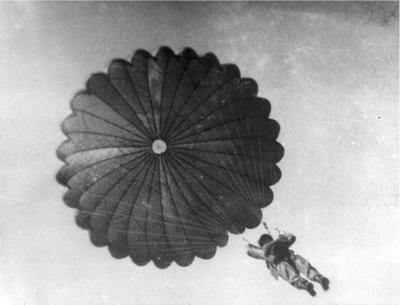
“Holocaust survivors and their families charged that Hugo Boss used forced labour during the war. Eventually, the company paid more than 700,000 Euros to a victims memorial fund.”
THEY SAY THAT there is no such thing as bad publicity. Tell that to clothing retailer Hugo Boss.
The upscale fashion house found itself unexpectedly in the spotlight this week for all the wrong reasons after British comedian Russell Brand publicly mocked the firm’s grim wartime record.
While emceeing a GQ Magazine awards gala, the eccentric comic pointed out that the event’s sponsor produced uniforms for the Nazi Party in the 1930s. Organizers promptly booted Brand from the ceremony.
“Any of you who know a little bit about history and fashion will know that Hugo Boss made the uniforms for the Nazis,” he joked. “The Nazis did have flaws, but, you know, they did look fucking fantastic.”
Brand’s remarks were hardly a revelation. In fact, the company’s historic connection to the Third Reich made international headlines in 1997 when a number of the firm’s forgotten wartime Swiss bank accounts were unearthed. Two years later, Holocaust survivors and their families charged that Hugo Boss used forced labour during the war. The group then launched a lawsuit to seek restitution. Eventually, the company paid more than 700,000 Euros to a victims memorial fund.
Founded in 1924 by Hugo Ferdinand Boss, a 39-year-old Metzingen native, the small tailoring business went bust in only a few years amid the economic turmoil of Weimar Germany.
In 1931, Boss re-established the enterprise. He also became also a card-carrying National Socialist. Shortly after Hitler’s rise to power in 1933, the firm became an official supplier of uniforms to a number of organizations and agencies within the regime, including the SS and even the Hitler Youth. The contracts made the once-struggling business an overnight success. Within the decade, its revenues had ballooned by nearly 10,000 percent. Between 1939 and 1945, Hugo Boss used nearly 200 civilians and Allied POWs as forced labourers in company workshops.
In 1946, German authorities prosecuted Boss personally and the courts levied a substantial 100,000-Mark fine on him. He died two years later. During the 1950s, the company shifted to men’s fashion and the brand thrived.
Hugo Boss AG has since joined a long list of corporations that have been forced to publicly atone for their part in the Nazi war effort. Consider these others:
- In 1998, Volkswagen confirmed that it used 15,000 forced labourers during the war. The automaker agreed to contribute to a compensation fund.
- IBM’s role in the Final Solution was the subject of much discussion a decade ago and even spawned one best-selling work of non-fiction.
- Bayer AG and its association with IG Farbin, the makers of gas chamber poison-of-choice Zyklon B, has also been well documented.
- The French railway company SNCF ran into trouble in 2010 when California lawmakers banned the firm from bidding on a $30 billion rail link between L.A. and San Francisco. The state’s Holocaust Survivor Responsibility Act forbid SNCF from taking part in the contract because of its role in transporting 75,000 Jews to concentration camps during the Nazi occupation.
- Not all examples of companies behaving badly come from World War Two. Case in point: America’s United Fruit Company, known for its Chiquita Banana brand, has been widely denounced for decades of strong arming Latin American governments. In 1928, company agents were implicated in a bloody crackdown on striking Columbian fruit-pickers. Government troops opened fire on the workers after Washington threatened to invade the country to end the dispute, which was costing UFCO money. Hundreds and possibly as many as 2,000 labourers were killed. In 1954, pressure from the firm drove the CIA to orchestrate the overthrow of the democratically elected leader of Guatemala. Jacobo Guzman took office on promises of sweeping domestic reforms. UFCO executives feared his popular policies would erode the company’s control over that nation’s agricultural lands. As such, it charged (some would say falsely) that Guzman intended to hand the country over to the Soviets and lobbied for action. UFCO’s reputation for propping up oppressive regimes in the developing world actually led to the expression “banana republic”.
- During the Vietnam War, American peace activists condemned Dow Chemicals for its production of Napalm. As we reported in March: “many pressed for widespread boycotts of the company’s products. Dow steadfastly defended its production of the weapon citing the manufacture of it as a patriotic duty.”
- Most surprising of all, the owners of a number of American blue chip companies like Chase Bank, Maxwell House, General Motors, Goodyear, Standard Oil, Dupont, and even Heinz had supposedly discussed toppling the Roosevelt Administration in the 1930s. The noted industrialists were all vocal critics of F.D.R.’s New Deal policies and supposedly had conspirators call upon a widely respected Marine Corps general by the name of Smedly Butler to help lead the lead a coup. The general refused to help and blew the whistle on the conspirators. An investigation ensued. No charges were ever laid although the Congressional committee tasked with looking into the debacle called the evidence “alarming.”










Great article!
Thanks.
Another tidbit from WWII history courtesy of Military History Now! It throws me for a loop to think that companies connected to the war 70 years later are still under seize today. I am not advocating looking away but going back to highlight these connections now…?
Another tangential point perhaps. If we are to hold predecessor leadership/ownership responsible, let us remember the more recent merger (and “dis-merger”) of DaimlerChrsler AG. It is ironic as Chrysler made the Sherman tanks for the US and Daimler AG the Panzer tanks for the Nazis. Daimler also produced the barrels for the Mausers. And BMW now owns… Mini Cooper. 🙂 Tons of others in this shrinking world.
‘The Nazis did have flaws’
Tell me about it. All those silly strategic blunders and time wasted on fantastical wonder weapons.